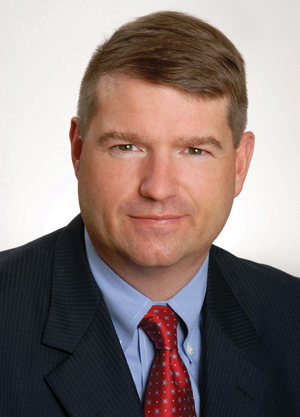From the Front Lines: High Net-Worth Personal Lines

R. Todd Rockefeller
Partner/Principal
DeRosa, Rockefeller, Sohigian & Werdal, Inc.
Merged with BNC Insurance & Risk Advisors
Harrison, New York
How did you get started at your agency?
I’ve been in the business 26 years. I spent the first eight years on the company side as an underwriter with Aetna Life & Casualty and then was a marketing rep with The Hanover Insurance. My father had a small agency in Rye Brook, New York, and after my company stint, he said, “Are you interested in the business?” I said, “I’m not interested in small business, but I would be interested with merging with another firm if you’re looking for an exit strategy.” That was the genesis of the Rockefeller Agency merging with DeRosa, Sohigian & Werdal, and we became DRSW in 1998.
I started here as a producer on commission with a small base salary, and I was calling mortgage lists every night and driving anywhere I had to be to network and develop relationships. Over time, you figure out what works and doesn’t work. You cut your teeth and take some knocks and eventually, you get good at it.
Why focus on high net-worth personal lines?
I was selling commercial package business and professional lines, and I always a line item on a CFO’s spreadsheet. Every two or three years they’d go out to market, and we’d be bashing our heads against the wall with all the other big New York City brokers. I realized the C-level executives appreciated the same business discussions and spreadsheets on their personal insurance that I was trying to drive on the commercial side, but their passion and interest was much more focused on me because that was their personal world.
So they’d sit there and talk about their primary home, their secondary home, flood, excess flood, jewelry, fine art, collections, classic cars, watercraft, domestic help, employment practices liability, and it became a lot more exciting and suitable for my interests.
And nobody was doing it in the early 2000s. Now, it’s gotten to be a terribly busy space. I’ll never say never, but the direct writers, captives, they don’t have all the tools to handle a typical high net-worth family’s needs. It’s essentially a small business account.
Biggest high net-worth insurance changes over the years?
In the olden days, which was only six or eight years ago, we had Chubb Insurance Company, ACE Private Risk, AIG Private Client, PURE Insurance, and Fireman’s Fund. Those five companies became three companies: AIG, PURE, and ACE, which gobbled up Fireman’s Fund and Chubb. So there’s a contraction, and now we’ve got new players coming into the market trying to play ball and be market disruptors. And of course, when you come into the market, you’re typically burning yourself in with a lower rate model and trying to get market share.
As advisers, we never know really what the longevity or rate sustainability of a new market player might be, but our clients oftentimes just want to save money. There’s a certain client that just wants to move with the market, which can be disruptive and frustrating. You start pulling pieces out of these programs, you start losing multiple policy discounts. All these programs are put together like Rubik’s Cubes. Once you get the puzzle together, you try to keep it together.
Future of high net-worth insurance?
I’d like to see home policies act less like a maintenance program and more like a catastrophic program. I think we might see more emphasis on higher deductibles: $5,000, $7,500, $10,000+, with a deductible credit that reduces the cost enough to allow the customer to make those choices. If we can eliminate all the nuisance claims, the $1,500 claims, I think we take a lot of stress off the insurance companies, and the public understands the policy is not designed for the small occurrences.
Advice for a fellow high net-worth personal lines agent?
I think you need to write at least two policies for a customer if not more. It needs to be a rounded policy—home, auto, umbrella for starters, certainly some jewelry, everyone’s got at least a piece. For some reason ,we see a lot of monoline policies in books, and it’s just not advantageous to the client and it’s not advantageous from an income standpoint for the agent. Have procedures within your agency to actively round out and have more policies per client.
That is not an old concept, either, but I don’t know if it’s focused on or not. The way to win, the way I’ve always won, is to be consultative and thoughtful and provide options and allow them to choose, instead of just saying, “Here it is.” It’s less about what I think and more about, “Here’s what the landscape of the market looks like, and here are your options.”
Favorite high net-worth personal lines success story?
A client called about what turned out to be a $2-million fire at the house. It was started by a child playing with a lighter. I arrived to find the kids crying on the front porch. The husband was in cancer care and the wife at wit’s end. I got on the phone with the carrier’s concierge service and said, “Look, this is what’s going on—we’ve lost everything.” They put me on the phone with one of their in-house realty sources, and within an hour, we found a home for rent in the same school district close by. It was secured that day by the insurance company.
It was just a great start on a long road. I’m getting goosebumps talking about it—it couldn’t have felt better to have fulfilled the promise. I think most of these anecdotes are on the claims side when we see it work. We’ve all seen it go sideways too, but when you see it work and it works well, you couldn’t be happier.










